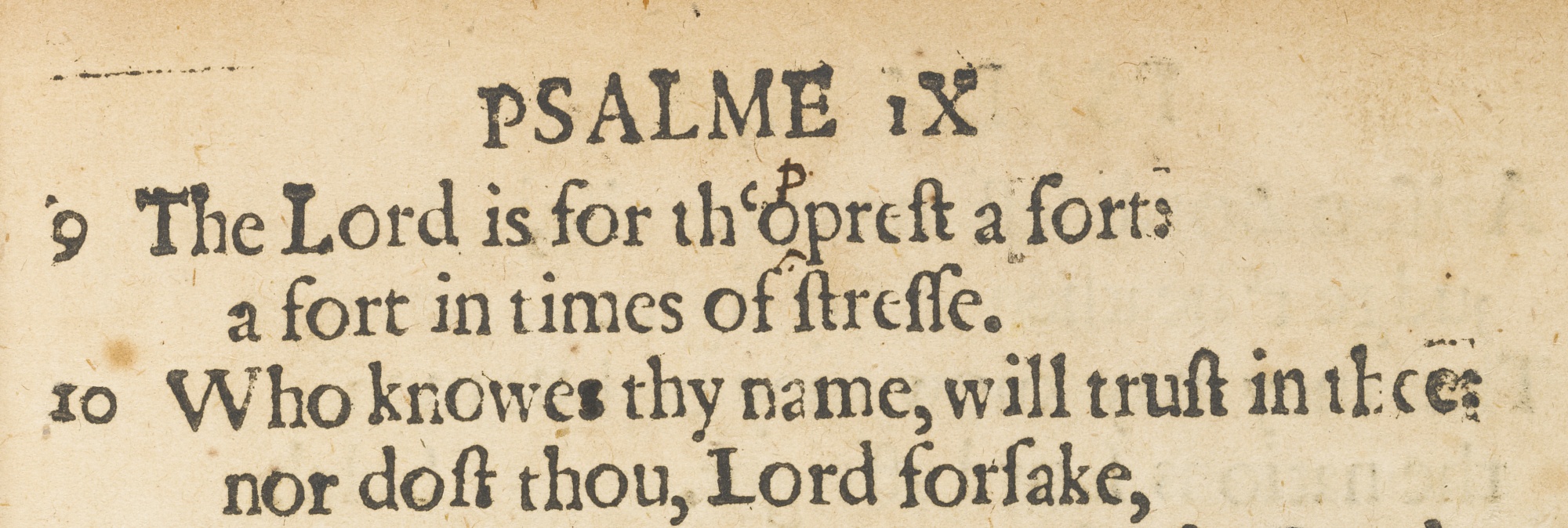 Last week I paused the verse-by-verse commentary of James in order to provide an orientation to this important section in James’ letter. I will continue these reflections today. Last week we noted that James and Paul use similar terminology in their teaching but with different meanings. If we are to understand the broader message of the New Testament with respect to these matters—faith, works and justification—it is essential to grasp what each of these authors is saying in their own context. A number of commentators insist that James and Paul are not at odds with one another as is sometimes supposed; rather, their respective visions of the Christian life are “complementary not contradictory” (see Moo, 45-46; Newman, “Righteousness” in Dictionary of the Later New Testament and Its Developments, 1056).
Last week I paused the verse-by-verse commentary of James in order to provide an orientation to this important section in James’ letter. I will continue these reflections today. Last week we noted that James and Paul use similar terminology in their teaching but with different meanings. If we are to understand the broader message of the New Testament with respect to these matters—faith, works and justification—it is essential to grasp what each of these authors is saying in their own context. A number of commentators insist that James and Paul are not at odds with one another as is sometimes supposed; rather, their respective visions of the Christian life are “complementary not contradictory” (see Moo, 45-46; Newman, “Righteousness” in Dictionary of the Later New Testament and Its Developments, 1056).
Behind both Paul and James’ understanding of justification stands the reality of divine judgement—a point raised by James in the verse immediately prior to this section (James 2:13). It is plain that for both James and Paul believers will stand before God at the final judgement. This is the ultimate cosmic context within which all history and every person, including every Christian person, stands. Mark Seifrid, therefore, notes that
No less prominent is the theme of individual judgment according to works (Heb 9:27-28; Rev 1:7; 2:7; 2:23). Each one will be called to give an account for his or her deeds (Heb 4:13; 13:17; 1 Pet 4:5-6). The NT authors are careful to apply the prospect of judgment to Christians themselves. As the judge of all, God will render his verdict impartially. Believers, although they name God as “Father,” must not presume upon grace (1 Pet 1:17-19; Heb 10:30; cf. Jas 2:9). … If the cross has worked a right standing with God for the believer, how is it that the believer must yet face judgment? Between this prospect and the proclamation of forgiveness in Christ stands an irreducible paradox. Yet to a certain extent lines of convergence can be traced. … That is not to say that all uncertainty is removed from the visible community of Christians; otherwise the warnings of judgment would make no sense. The church on earth yet remains under testing. Nevertheless, where saving realities are present they manifest themselves in persevering faith and obedience, which secure the believer in the final judgment (“Judgment” in Dictionary of the Later New Testament and Its Developments, 623-624).
What James attacks in this section is a kind of false faith limited to doctrinal correctness, which he warns will not suffice in the day of judgement. To say this, however, is not to say that one’s works are sufficient for justification. James never contemplates the idea that works could exist without faith. Rather, true faith issues in works of perseverance, obedience, faithfulness and mercy with the result that one’s faith is shown to be genuine (Davids, “Faith and Works” in Dictionary of the Later New Testament, 368). In this respect both Paul and James are in agreement.
Why then, is it necessary for James to take this approach in his teaching? Davids suggests that perhaps there is conflict in the community, where some people are refusing to share their resources with others who are needy (Davids, “Faith and Works,” 368). A better proposal, I think, comes from Moo who suggests that James is facing false teachers who are distorting Paul’s teaching of justification, suggesting that one must only “believe” with no further requirement in terms of the outworking of Christian life and service. The verse-by-verse study will provide an opportunity to test Moo’s proposal.
The relevance of James’ teaching today need hardly be questioned. On the one hand, some Christians seem to suggest that Christian faith stands or falls with right-believing, as though the content of one’s belief is what justifies. This is clearly and decisively repudiated by James in this passage. Faith cannot be reduced to right-belief. Certainly our beliefs structure, strengthen and support our faith, but they are not our faith. While sound beliefs are desirable, and wrong beliefs are to be avoided, it is certainly possible to have genuine faith in Jesus even without correct beliefs. Nevertheless, even today there are those who distort Paul’s teaching of grace, perverting the gospel to teach a self-centred and consumerist doctrine. Here the relevance of James’ message is plain.
Others make the opposite mistake and suppose that our works, especially humanitarian works of mercy and justice, are what justify us. The call to mercy and justice found in both the Old and New Testaments is addressed to the community of God’s people, to those who have already come into a saving relationship with God through grace, and who are therefore called to imitate God and express his goodness in the world. Works of justice and mercy are an expression of faith not a replacement for faith. Though Christians must surely give thanks for and support those who participate in such work, they also do well to bear witness to Christ as the source, motivation and goal of all such work.
In the early twentieth-century, Christoph Blumhardt, a German Pietist pastor and Social Democrat member of the German Reichstag (Parliament) was a controversial figure because he refused to allow Christians to become comfortable as bourgeois members of society, insisting rather that faith in Christ must move us to participate in the ongoing work of his kingdom:
Neither in heaven nor on earth is it possible just to settle down comfortably in something through grace and do nothing and care for nobody else. If I am saved by grace, then I am a worker through grace. If I am justified by grace, then through grace I am a worker for justice. If through grace I am placed within the truth, then through grace I am a servant of truth. If through grace I have been placed within peace, then through grace I am a servant of peace for all men. (Blumhardt, “Joy in the Lord,” in Action in Waiting, 66).






